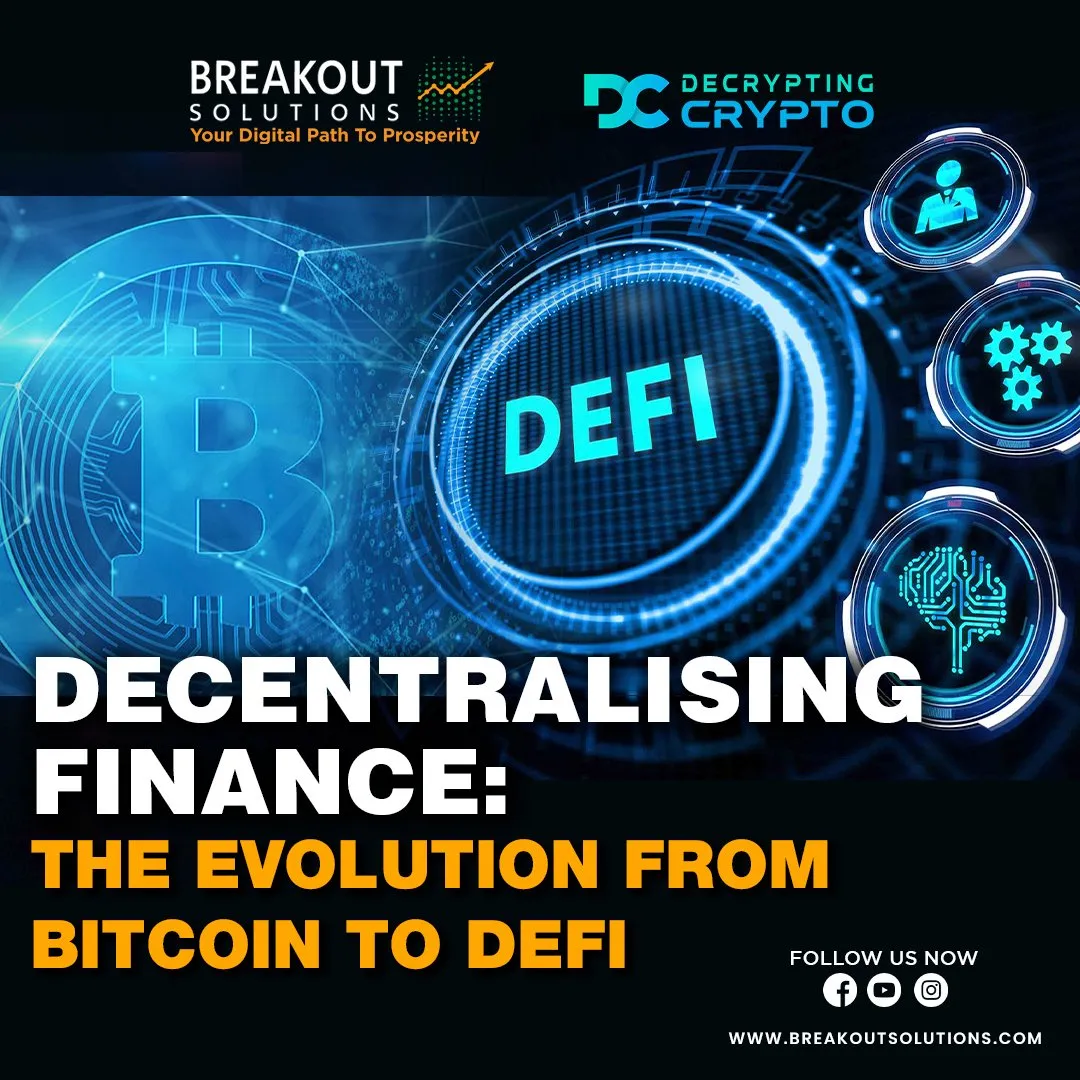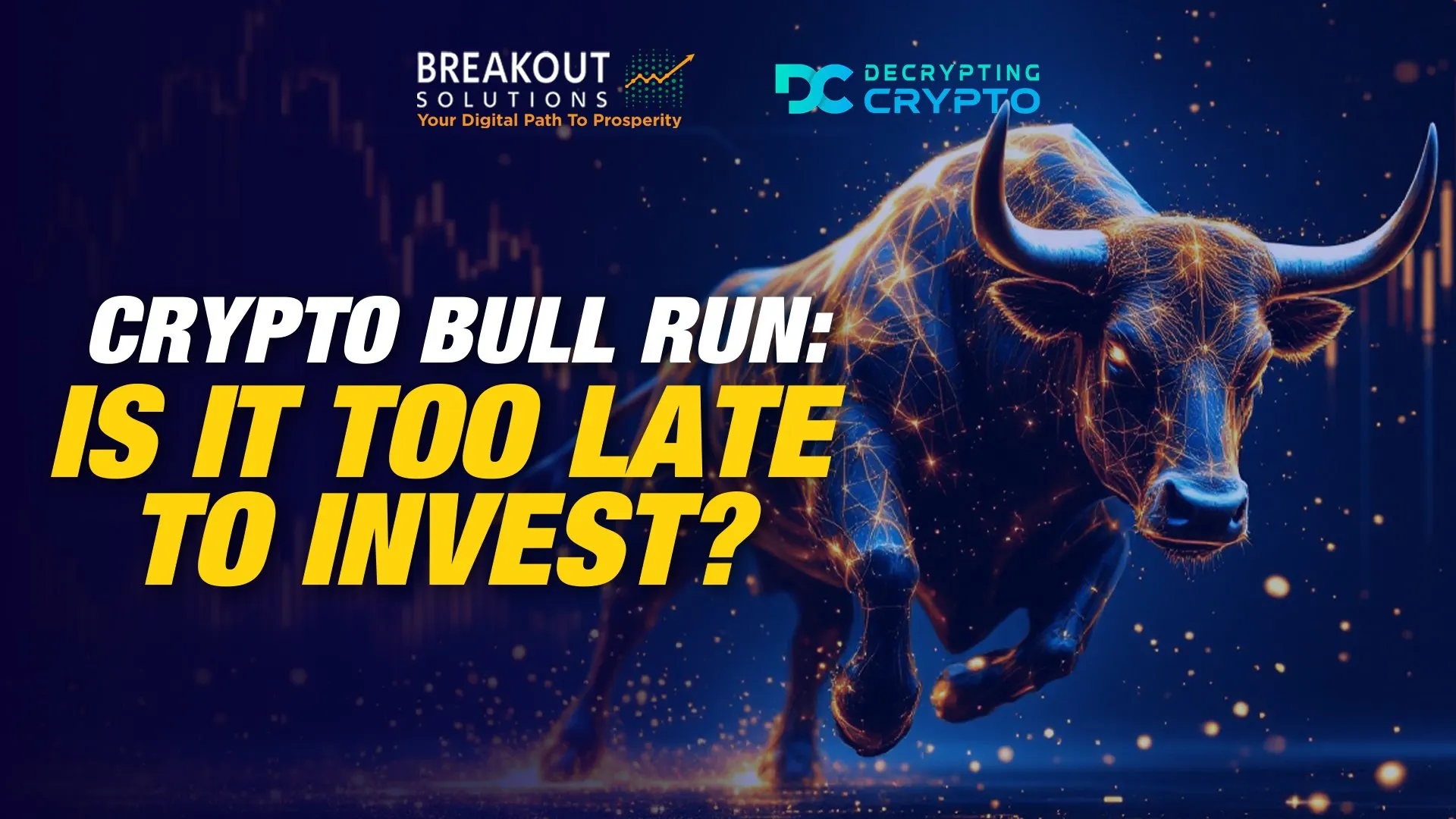Decentralising Finance: The Evolution from Bitcoin to DeFi
Author: JR Foronda

In the realm of financial evolution, the journey from Bitcoin's inception to the flourishing ecosystem of Decentralized Finance (DeFi) marks a pivotal shift towards democratizing financial services. This blog post delves into the transformative path digital finance has traversed, spotlighting how DeFi is reshaping access, transparency, and control within the financial domain.
A New Dawn: Bitcoin's Revolutionary Leap
The financial meltdown of 2008 sowed seeds of distrust towards traditional banking systems, setting the stage for a groundbreaking innovation: Bitcoin. Conceived by the enigmatic Satoshi Nakamoto, Bitcoin emerged not merely as digital cash but as a beacon of financial autonomy. Its bedrock, blockchain technology, promised a future where transactions were transparent, secure, and, most importantly, decentralized. Bitcoin was more than a new form of money—it was a vision for a more equitable financial system.
Altcoins and the Expansion of the Blockchain Ecosystem
Bitcoin's breakthrough heralded a new era of digital currencies, known collectively as altcoins. Among these, Ethereum stood out by introducing smart contracts, which expanded blockchain's utility far beyond simple monetary transactions. These self-executing contracts, coded directly onto the blockchain, opened up a world of possibilities for automating complex agreements without the need for intermediaries. The inception of Ethereum underscored blockchain's potential to revolutionize not just currency, but the very fabric of digital agreements and applications.
The Rise of Decentralized Finance (DeFi)
The advent of smart contracts paved the way for DeFi, an ecosystem of financial services operating without centralized control. From lending and borrowing platforms to decentralized exchanges and insurance protocols, DeFi has reimagined financial transactions. It offers a suite of services traditionally monopolized by banks and financial institutions but with a crucial difference: in DeFi, users retain full control over their assets, conducting transactions directly from their digital wallets.
DeFi's Democratic Promise
At its core, DeFi embodies the principle of financial inclusivity. It extends the reach of financial services to anyone with internet access, bypassing geographical limitations and the need for a bank account. This paradigm shift holds the promise of integrating unbanked populations into the global economy, offering them opportunities for savings, loans, and investments previously out of reach.
Navigating the Challenges
Despite its potential, the road to DeFi's widespread adoption is strewn with challenges. Issues such as scalability, high transaction costs, and security risks are significant barriers. Moreover, the regulatory environment for DeFi remains a grey area, with future legal frameworks potentially impacting its development.
However, the DeFi community is resilient, with ongoing innovations aimed at addressing these challenges. Solutions like layer-2 scaling for reduced fees and enhanced transaction speeds, and developments in cross-chain interoperability and security, are steadily paving the way for a more robust DeFi ecosystem.
Looking Ahead: The Future of Finance
The journey from Bitcoin to DeFi is not just a narrative of technological evolution; it's a testament to the enduring human quest for financial empowerment. As we continue to explore the possibilities within DeFi, we edge closer to realizing a financial system that is accessible, transparent, and equitable.
The digital finance revolution, sparked by Bitcoin and now propelled by DeFi, is redefining our relationship with money and financial services. In this rapidly evolving landscape, the innovation potential is limitless, promising a future where financial control rests firmly in the hands of the individual. As we embrace this new era of finance, the vision of a decentralized, inclusive financial system becomes increasingly tangible, heralding a new chapter in the story of financial liberation.

